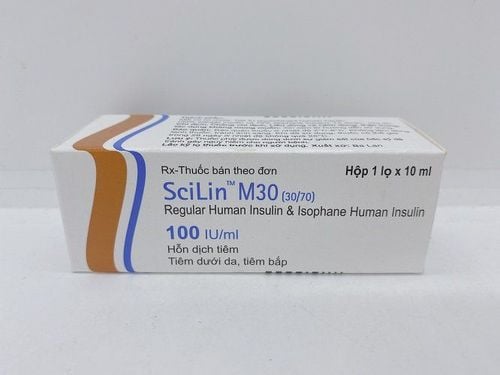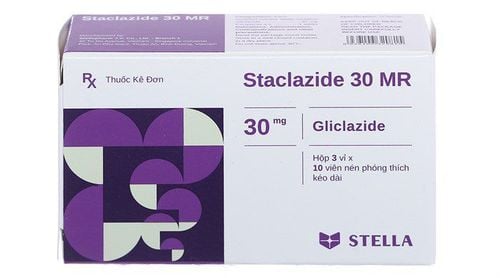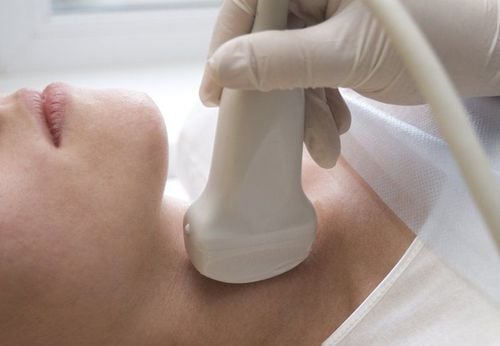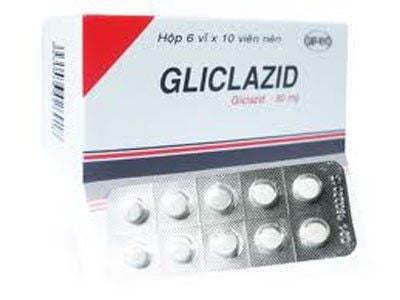This is an automatically translated article.
The article was professionally consulted with Master, Doctor Vu Thi Duyen - Doctor of Nephrology - Endocrinology - Department of Examination & Internal Medicine, Vinmec Hai Phong International General Hospital.Autoantibodies are proteins made by the body's immune system and are used as evidence in the diagnosis of type 1 diabetes. Therefore, autoantibody tests are very valuable in diagnosing type 2 diabetes. One of them is the ICA test.
1. What is the ICA test?
The Islet Cell Autoantibodies (ICA) test is a quantitative test of autoantibodies against the islets of the pancreas. It is one of the most common autoantibodies detected during disease onset with an incidence of 70-80% in newly diagnosed type 1 diabetes patients. ICA testing should be performed when:Differentiating the type of diabetes is related to the autoimmune system. Diabetics treated with diet or medication have difficulty (difficult to control) in maintaining adequate blood sugar levels, so type 1 diabetes should be suspected instead of type 2.
2. How is diabetes diagnosed based on the ICA test?
Criteria for diagnosis of diabetes include the following:Fasting plasma glucose of at least 8 hours or more (FGD) above 7.0 mmol/l.
Or 2 hour oral glucose tolerance test above 11.1 mmol/l.
Or HbA1c above 6.5%. Or random plasma glucose above 11.1 mmol/l. However, for type 1 diabetes, it is necessary to determine the presence of one of the autoantibodies in the blood. At this time, the ICA test will help determine whether anti-pancreatic islet autoantibodies are present in the patient's circulation or not.

Giải đáp xét nghiệm ICA là gì?
3. Some notes about the ICA . test
Unlike the GAD or IA-2A tests, the ICA test requires a more modern laboratory and also requires more expertise to read the results. Anti-islet autoantibody testing may be used to screen for the risk of developing type 1 diabetes in family members of genetically affected individuals. The higher the ratio of anti-islet autoantibodies in a person when tested, the greater the risk of developing type 1 diabetes later in life.If a person currently has no symptoms of diabetes (i.e. a normal person) but has autoantibodies on quantitative ICA testing along with a low insulin response to intravenous injection, the risk develop into type 1 diabetes is very high. For example, people with a family history of type 1 diabetes who have ICA and low insulin responsiveness have a 50% greater risk of developing type 1 diabetes in the next 5 years.
However, quantitative testing of anti-islet autoantibodies for the purpose of screening patients with type 1 diabetes is not recommended because anti-islet autoantibodies can also be found in other diseases such as autoimmune endocrine disease, Hashimoto's thyroiditis, Addison's disease. Therefore, patients should go to specialized medical facilities so that the doctor can prescribe the most accurate test method to diagnose diabetes.
Currently, at Vinmec International General Hospital, there are full examination, screening and testing programs to diagnose diabetes. The entire process of examination, screening, determination of the condition and stage of the disease is carried out by experienced and well-trained specialists both at home and abroad. Besides, in order to improve service quality, in addition to fully equipped with the most modern facilities, at Vinmec, there are also packages of diabetes screening and hyperlipidemia so that customers can conveniently intensive examination and treatment.
Please dial HOTLINE for more information or register for an appointment HERE. Download MyVinmec app to make appointments faster and to manage your bookings easily.













